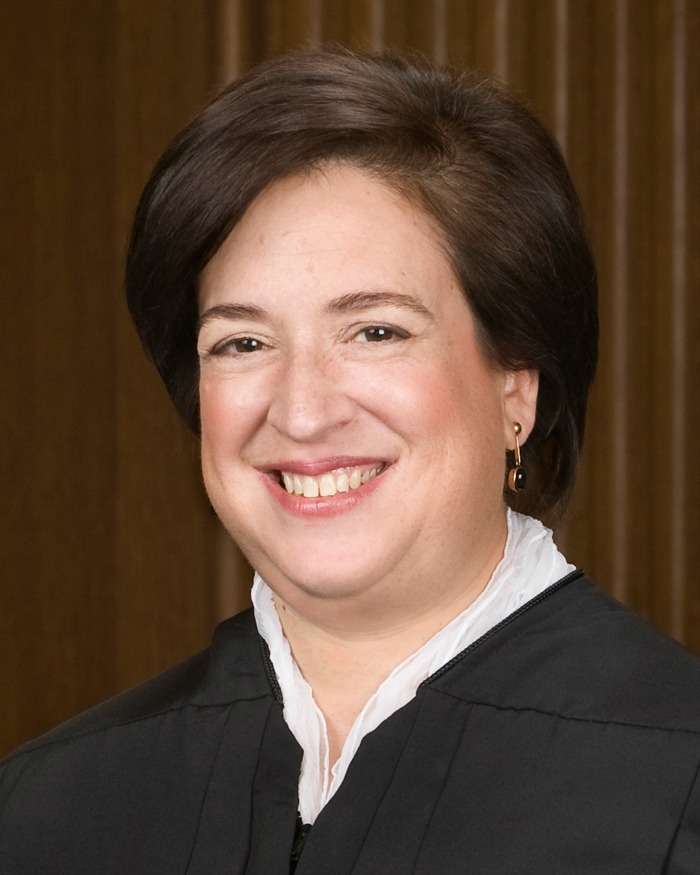SCOTUS Says You Can't Lose Your Citizenship for Lying About Your Weight
The Court unanimously rejects the government's position that any misstatement by an applicant can justify denaturalization years later.

Can a naturalized American lose his citizenship because he misrepresented his weight on his application form, neglected to mention that he once belonged to a Barry Manilow fan club, or failed to acknowledge the various occasions on which he exceeded the speed limit without being caught? The Justice Department, under Barack Obama as well as Donald Trump, said yes. Yesterday the Supreme Court unanimously disagreed.
The issue in Maslenjak v. United States was the meaning of 18 USC 1425, which makes it a felony to "procure" citizenship "contrary to law." In addition to a prison term of up to 25 years, a conviction under that statute triggers automatic loss of citizenship. That is what happened to Divna Maslenjak, an ethnic Serb from Bosnia who became a citizen in 2007. Malenjak was convicted of violating 18 USC 1425 because she lied about her husband's military service while seeking refugee status in 1998 and did not acknowledge the lie when she applied for citizenship. Instead she swore under oath that she had never provided false information while seeking an immigration benefit or entry to the United States. That denial violated another law making it a crime for a naturalization applicant to knowingly make a false statement under oath.
Whether Maslenjak's lie helped her obtain citizenship is a matter of dispute. But during her trial, the prosecution argued that it did not matter, and the judge agreed, telling the jurors they could convict Maslenjak of illegally procuring citizenship "even if you find that a false statement did not influence the decision to approve the defendant's naturalization." Last year the U.S. Court of Appeals for the 6th Circuit approved that interpretation of the law, opening the door to fishing expeditions that could strip people of their citizenship based on trivial misstatements made years ago.
According to the Supreme Court, the interpretation approved by the 6th Circuit relies on an unnatural reading of the words Congress used. "The most natural understanding is that the illegal act must have somehow contributed to the obtaining of citizenship," writes Justice Elena Kagan in the majority opinion. "To get citizenship unlawfully, we understand, is to get it through an unlawful means—and that is just to say that an illegality played some role in its acquisition." She elucidates the point with an example:
Suppose that an applicant for citizenship fills out the necessary paperwork in a government office with a knife tucked away in her handbag (but never mentioned or used). She has violated the law—specifically, a statute criminalizing the possession of a weapon in a federal building….And she has surely done so "in the course of " procuring citizenship. But would you say, using English as you ordinarily would, that she has "procure[d]" her citizenship "contrary to law" (or, as you would really speak, "illegally")? Once again, no. That is because the violation of law and the acquisition of citizenship are in that example merely coincidental: The one has no causal relation to the other.
Kagan notes that the government's counterintuitive reading of the law leads to some strange results. People could lose their citizenship, for example, by lying about facts that would not have prevented their naturalization to begin with. "Lies told out of 'embarrassment, fear, or a desire for privacy' (rather than 'for the purpose of obtaining [immigration] benefits') are not generally disqualifying under the statutory requirement of 'good moral character,'" she writes. But those same lies, according to the government, are enough to revoke citizenship after it has been granted. The upshot, Kagan says, is that the government could "take away on one day what it was required to give the day before."
Kagan also calls attention, as several justices did during oral argument, to the sweeping impact of the government's position. "Suppose, for reasons of embarrassment or what-have-you, a person concealed her membership in an online support group or failed to disclose a prior speeding violation," she writes. "Under the Government's view, a prosecutor could scour her paperwork and bring a §1425(a) charge on that meager basis, even many years after she became a citizen. That would give prosecutors nearly limitless leverage—and afford newly naturalized Americans precious little security."
You might think such casual disregard for people's hard-won citizenship is related in some way to the tough immigration policies advocated by Donald Trump. But as I mentioned at the outset (and pointed out last month), the Trump administration only continued to defend a position taken by the Obama administration. On the question of whether prosecutors should have vast authority to turn naturalized Americans' lives upside down on the slightest pretext, there is no daylight between Trump and Obama.


Show Comments (46)